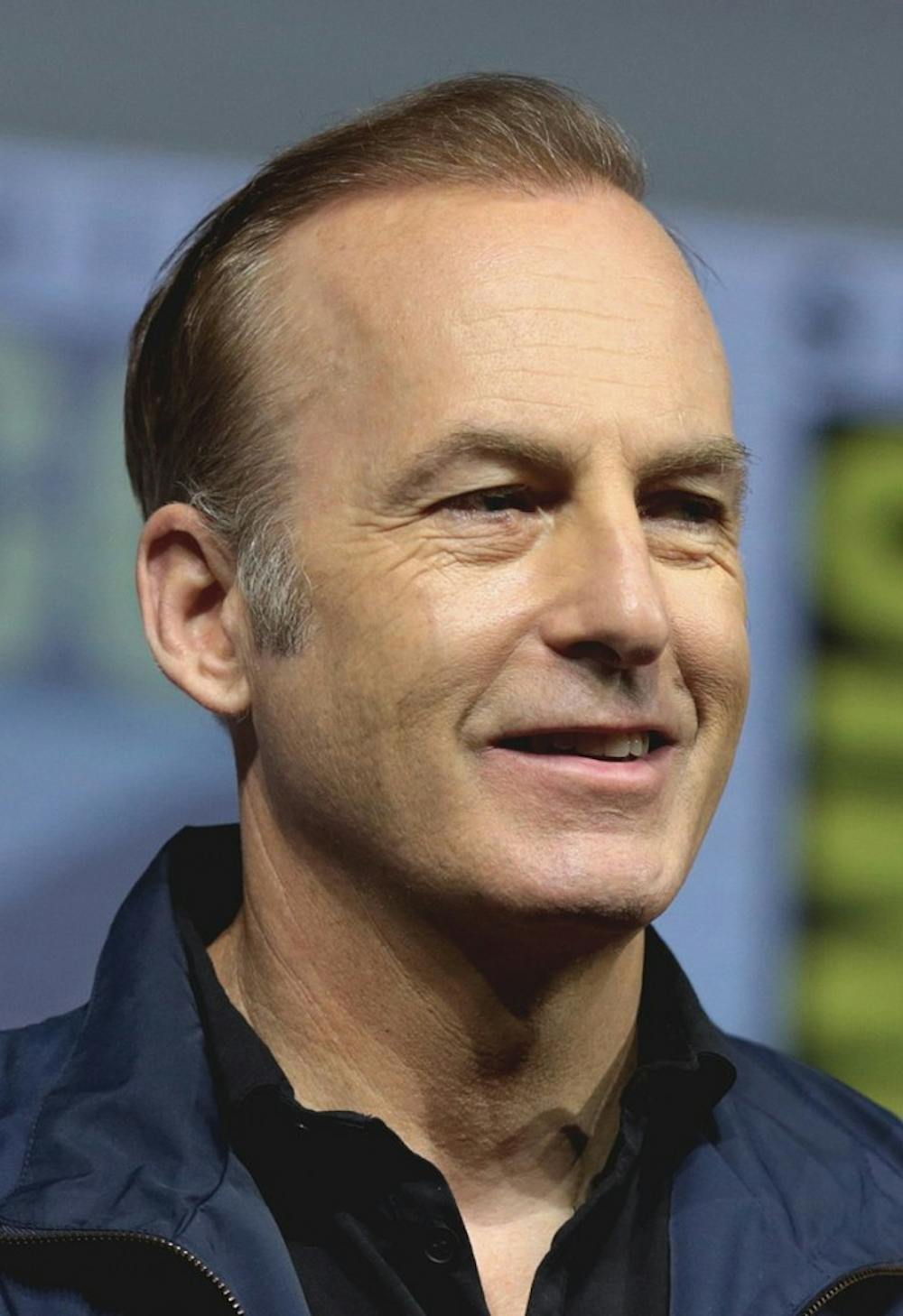Jimmy McGill (Bob Odenkirk) just cannot catch a break. The fourth season of “Better Call Saul” concluded this week, and for the show’s entire run, McGill has languished in the shadow of his deceased, more successful brother, the legendary lawyer Charles “Chuck” McGill (Michael McKean). Jimmy is such a compelling character in part because of the chip on his shoulder.
Like Jimmy, “Better Call Saul” has always had to compete with a successful sibling. “Breaking Bad,” the inspiration for this prequel spin-off, has been widely anointed the greatest show of all time. Yet while the impatient Jimmy cuts corners to earn what he believes is his rightful place, “Better Call Saul” has remained remarkably precise and deliberate with its every move.
“Saul” matches its predecessor’s attention to detail. The gadgets and music of the early 2000s may not seem to be drastically different from today, but the creative team on “Better Call Saul” creates a world slightly different from modern times while preserving the Albuquerque viewers know from “Breaking Bad.” The cell phones, the TV guides, everything matches the time period exactly, a level of detail most movies and television shows often do not bother to replicate.
Writer Vince Gilligan and talent like Adam Bernstein — who directed the finale — remain exceptional. In a musical montage in the seventh episode, Jimmy’s gradual moral decline is portrayed through split comic book-style panels of his life contrasted with longtime partner Kim Wexler’s (Rhea Seehorn) ascension into a partner office at a respected law firm. Gilligan and company have not lost their gift for stylish musical interludes and sequences that simultaneously advance the story.
Bob Odenkirk, too, has been excellent throughout the series, and the fourth season is no different. Odenkirk is a comic genius, memorably impersonating a southern preacher over the phone to con a prosecutor. He is equally skilled dramatically, portraying a breakdown over his life’s failures after his beater of a car fails to even start.
Familiar faces drift in and out, and unlike most of the ubiquitous Hollywood-style cinematic universes, none of the cameos feel forced. Mike Ehrmantraut (Jonathan Banks) is not just present for fan service as a favorite character in “Breaking Bad” — he’s critical to the show’s progression, starring in a dark arc of his own, working for the Machiavellian drug-lord Gustavo Fring (Giancarlo Esposito).
In substance and plot, “Better Call Saul” has never felt so much like its predecessor. The characters become more recognizable with each passing episode. The overbearing legacy of Jimmy’s brother Chuck provides the impetus for the respectable and hard-working Jimmy to transform into the sleazy “lawyer that guilty people hire” whom audiences know from “Breaking Bad."
A good half of this season, though, is not spent on Jimmy, but on the various faces of the criminal underworld Saul will become intimately familiar with going into “Breaking Bad.”
Nacho Varga (Michael Mando), whose scenes were the weakest link of the series in prior seasons, finally feels as fleshed out as every other character. He desperately wants to leave crime while realizing the inevitable consequences for him and his family forbid him from actually doing so. He is beyond saving, and he knows it.
Thinking he was free of the Salamanca crime family after poisoning its leader Hector (Mark Margolis) last season, Nacho is now back in trouble, forced to work as a spy for Gustavo Fring’s side of the cartel. Things get predictably ugly, but Mando conveys the brutal emotional and physical pain his character is suffering with his body language remarkably well, making the subtitled dialogue more of a complement to his acting than a necessary crutch for non Spanish-speaking viewers.
Mike Ehrmantraut’s story has time to develop further this year as well when a German engineer, hired by Mike, arrives to construct the cavernous meth lab seen in “Breaking Bad.” Werner (Rainer Bock) quickly finds a kindred spirit in the equally practical Mike. Their friendly relationship gives Ehrmantraut’s steely outward persona an emotional core that makes the dramatic events at the end of the season all the more heartbreaking. For Mike, business always has to come first.
Few television shows could manage to balance these seemingly disparate plots as well as “Better Call Saul." Jimmy and Kim’s world never intersects with the criminal one audiences spend the other half of their time seeing, but the connecting themes that were missing in season three are now clear. Choices are everything.
Nacho’s earlier decisions trap him. Mike knows the choices he has to make are bad, and he makes those choices with that long term logic in mind. Jimmy cannot refrain from mistakes — he doesn’t even see them as choices. In all three instances, what goodness remained has been stripped away in suitably different ways.
Knowing where most of the characters end up come “Breaking Bad” could easily make this series anticlimactic, particularly if those characters were not so vividly realized and developed on screen. This season of “Better Call Saul” makes it clear that Gilligan and company have just as much of a plan for this series as they did years earlier with their masterpiece, and are not just merely filling out a universe for the sake of raking in more cash. The good guys are destined to fail here for Walter White to emerge with his own tragic arc. Destiny has never been this captivating.





